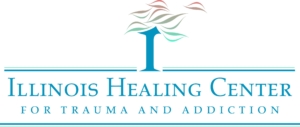What is Small ‘t’ Trauma?
Many people have written off the idea that they could have experienced trauma because they have not experienced something as seemingly significant as sexual assault or physical abuse. After all, remember the old saying, “Sticks and stones may break my bones, but words will never hurt me?” Turns out that was false. New research is unveiling a type of trauma – small ‘t’ traumas- that has pretty significant impacts on people’s lives. These are events that exceed a person’s capacity to cope and disrupt emotional functioning. These events are not the big traumatic incident that is so cataclysmic to a person’s sense of self and safety. Rather, small ‘t’ traumas are typically a series of events that prove to be distressing and can leave the individual feeling a strong sense of hopelessness.
Examples of Small ‘t’ Trauma
Small ‘t’ trauma can feel overwhelming to the person experiencing it because of the severe emotional damage it can cause. While a person may not realize that their experiences have had traumatic effects on them because they were not assaulted or involved in a terror attack, their body and mind are responding in similar ways. Small ‘t’ trauma can be any event that causes distress, fear, or helplessness. Examples of small ‘t’ trauma can include:
- Intrapersonal conflict (such as emotional abuse or divorce)
- Emotional neglect in developmental years
- Bullying or repeatedly being made fun of as a young person
- Loss of a significant relationship (including a pet)
- Prolonged stress (examples are financial or legal trouble)
- Medical or physical illness
- Experiencing a lot of unpredictability, especially in childhood
The term small ‘t’ trauma can be misleading. Repeated exposure to this type of trauma can cause just as much, and in some cases, more, emotional dysregulation and harm than a single big ‘T’ trauma event and can manifest into adulthood if left untreated.
Coping with Small ‘t’ Trauma
Once you recognize your experiences may have small ‘t’ trauma components it is important to create self-care outlets and get the proper support and treatment. Taking consistent breaks, moments of self-compassion, and making small healthy decisions are crucial in helping yourself heal through your traumas.
If your small ‘t’ trauma becomes unmanageable and affects your day-to-day life, it may be time to seek professional help. Cognitive behavioral therapy, Acceptance and Commitment Therapy, and in some cases EMDR, are great therapeutic modalities to help you step forward in your healing journey and break free of trauma-triggered behaviors.
How to Get Started
If you or someone you know is impacted by trauma, our therapists at Illinois Healing Center are here to help. For support, visit our website at https://www.ilhealingcenter.com/contact or call us at 773.570.0770 to schedule an appointment.



